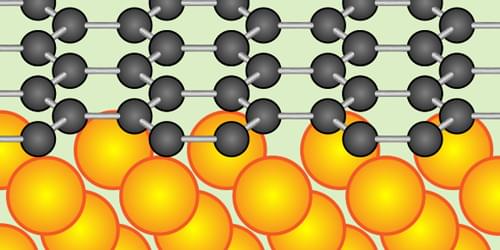Researchers have demonstrated a way of measuring the electronic states of a material’s surface while avoiding signal contaminations from deeper layers.
The electronic states of a material’s surface might only be 2D, but they offer a depth of interesting physics. Such states, which are distinct from those of the material’s bulk, dominate many phenomena, such as electrical conduction, magnetism, and catalysis, and they are responsible for nontrivial surface effects found in topological materials and systems with strong spin-orbit interaction. Surface electronic states also control the properties of so-called 2D materials, such as graphene. To understand surface phenomena and harness them in practical devices, researchers chiefly rely on photoemission spectroscopy, which measures the energy and momentum of electrons emitted when photons hit the material. The high resolution with which electron energy and momentum can be characterized allows physicists to measure both the band structure and the density of states (DOS) in the few surface layers where escaping photoelectrons originate.
